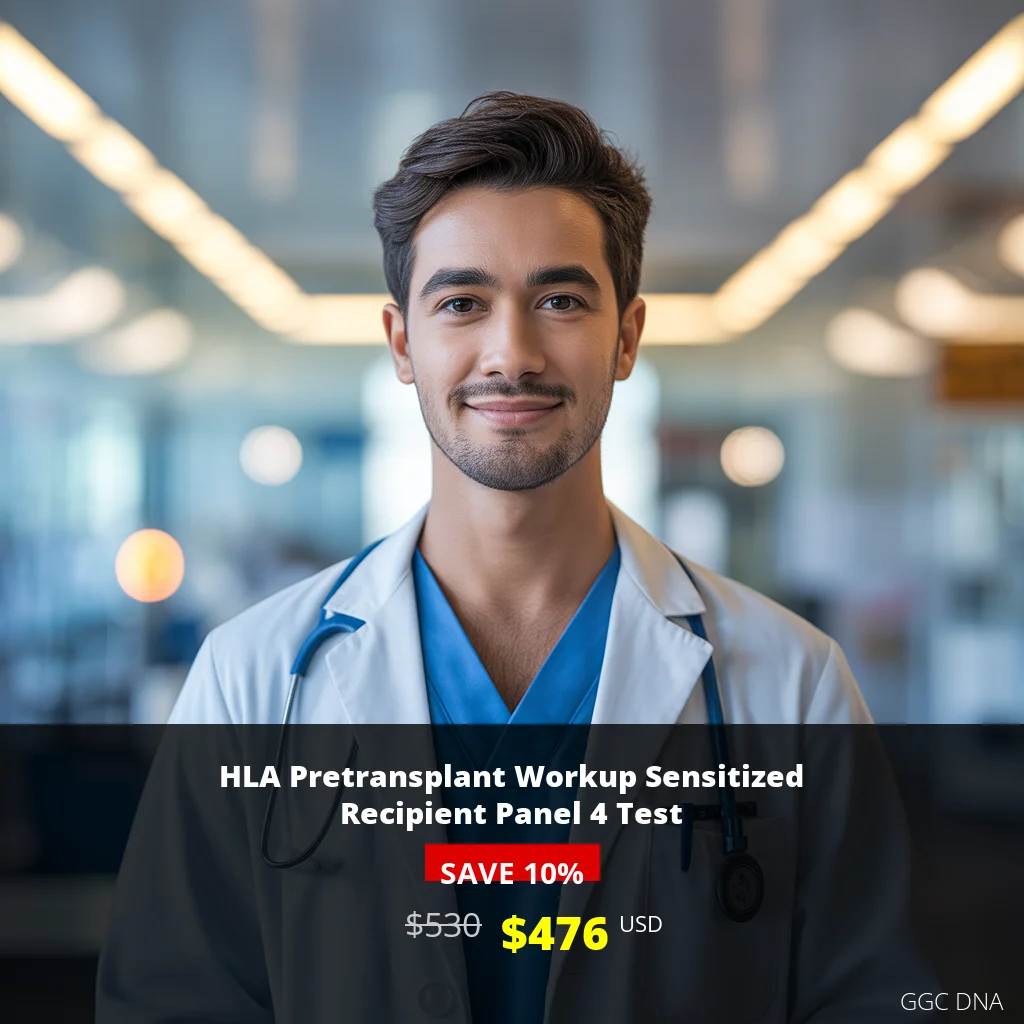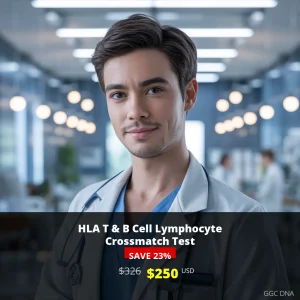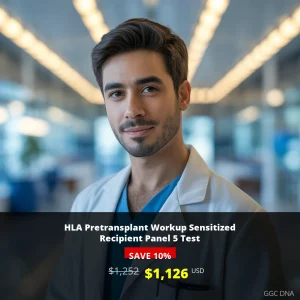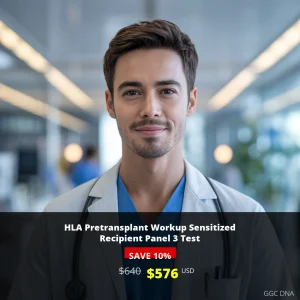HLA Pretransplant Workup Sensitized Recipient Panel 4 Test
Comprehensive Introduction to Transplant Compatibility Testing
The HLA Pretransplant Workup Sensitized Recipient Panel 4 Test represents a critical advancement in transplant medicine, specifically designed for patients who have developed immunological sensitization through previous exposures. This sophisticated diagnostic panel serves as a cornerstone in modern transplant protocols, providing transplant teams with essential data to navigate the complex immunological landscape of organ transplantation. The test’s comprehensive approach ensures that both recipients and donors undergo thorough compatibility assessment, significantly reducing the risk of post-transplant complications and improving long-term graft survival rates.
What This Advanced Test Measures and Detects
This comprehensive panel employs multiple cutting-edge technologies to provide a complete immunological profile:
- HLA DNA High Resolution Typing via NGS: Next-generation sequencing provides unparalleled accuracy in identifying HLA antigens
- Complement Dependent Cytotoxicity with DTT Treatment: Detects cytotoxic antibodies that could damage transplanted organs
- Reverse SSOP – Luminex Technology: Identifies specific antibody-antigen interactions with high sensitivity
- Flow Cytometry Analysis: Quantifies antibody levels and assesses their functional impact
- Sequence Based Typing (SBT): Provides definitive HLA allele identification for precise matching
Clinical Indications: Who Should Consider This Test
This specialized testing is essential for several patient populations:
- Patients with previous organ transplants experiencing antibody-mediated rejection
- Individuals with multiple blood transfusions or pregnancy history
- Candidates for kidney, heart, liver, or lung transplantation
- Patients with autoimmune conditions affecting transplant eligibility
- Individuals with documented HLA antibody sensitization
- Pediatric transplant candidates with complex immunological histories
Significant Benefits of Comprehensive Pretransplant Evaluation
Undergoing this detailed assessment provides numerous advantages:
- Enhanced Transplant Success: Identifies potential rejection risks before transplantation
- Personalized Treatment Planning: Enables customized immunosuppression protocols
- Reduced Wait Times: Facilitates better donor matching through precise compatibility data
- Improved Long-term Outcomes: Significantly increases graft survival rates
- Comprehensive Risk Assessment: Provides complete immunological profiling for informed decision-making
Understanding Your Test Results
Your results will provide detailed information about:
- HLA Antibody Profile: Specific antibodies detected and their potential clinical significance
- Crossmatch Compatibility: Virtual and actual crossmatch results with potential donors
- Risk Stratification: Assessment of rejection risk based on antibody characteristics
- Treatment Recommendations: Guidance on desensitization protocols if needed
- Donor Selection Criteria: Specific HLA antigens to avoid in potential donors
Our experienced transplant immunologists will provide comprehensive interpretation and consultation to ensure you understand all aspects of your results and their implications for your transplant journey.
Test Pricing and Availability
| Test Name | Discount Price | Regular Price |
|---|---|---|
| HLA Pretransplant Workup Sensitized Recipient Panel 4 Test | $476 USD | $530 USD |
Nationwide Testing Availability
GGC DNA maintains comprehensive testing facilities across the United States, with specialized transplant immunology centers in all major metropolitan areas including New York, Los Angeles, Chicago, Houston, Phoenix, Philadelphia, San Antonio, San Diego, Dallas, San Jose, and many other cities. Our network ensures timely sample processing and result delivery regardless of your location.
Sample Collection and Processing Details
Turnaround Time: 10-12 days
Sample Requirements:
Donor: 12 mL (10 mL min.) whole blood in 2 Yellow Top (ACD) tubes AND 4 mL (2 mL min.) whole blood in 1 Lavender top (EDTA) tube AND 4 mL (2 mL min.) whole blood in 1 Green Top (Sodium Heparin) tube.
Shipping Instructions: Ship at 18-22°C. DO NOT REFRIGERATE OR FREEZE.
Required Documentation: Doctor’s prescription on letterhead with 1 photograph each of recipient and donor duly stamped AND Consent form for HLA Typing for Solid organ transplant (Form 33) is mandatory.
Take the Next Step in Your Transplant Journey
Don’t let immunological barriers delay your path to transplantation. Our comprehensive HLA Pretransplant Workup provides the critical data needed for successful organ matching and transplantation. Contact our transplant specialists today to schedule your assessment and take the first step toward improved transplant outcomes.
Call or WhatsApp our transplant coordination team at +1(267) 388-9828 to book your HLA Pretransplant Workup Sensitized Recipient Panel 4 Test today. Our experienced staff will guide you through the process and answer all your questions about this essential transplant evaluation.






